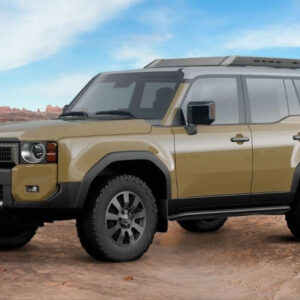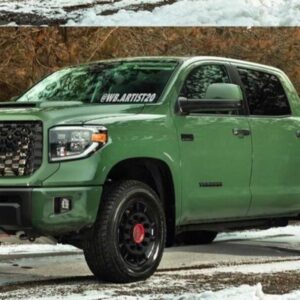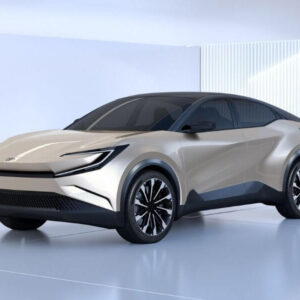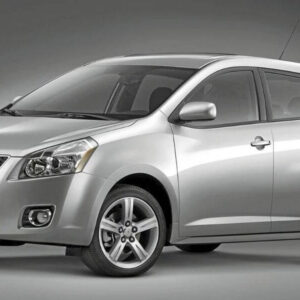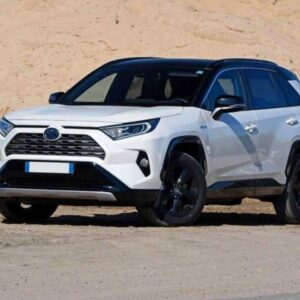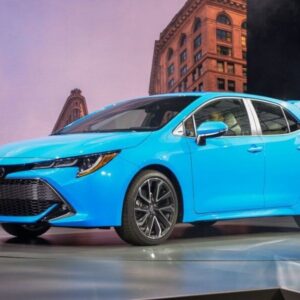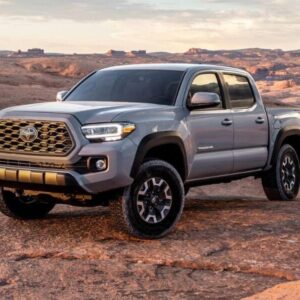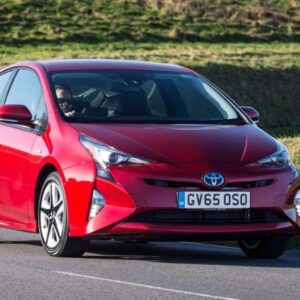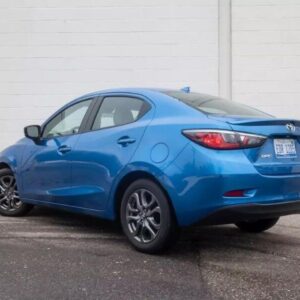Does Toyota make a Diesel Truck? Which Toyota use diesel? Toyota does not make a diesel truck. But, in early 2022, it was confirmed by the Japanese automaker that the 2023 Toyota Tundra will come with a diesel engine.
Right now, that’s all the information Toyota has released about this new engine. We know it will be more fuel efficient, but other engine specs are still being kept under wraps.
Driving a fuel efficient truck is a great way to scale back on your vehicle-related expenses. An even better and easier way to get more money back in your pocket is by downloading Jerry, the super app drivers trust to find the best car insurance deals on the market.
Jerry uses the power of comparison shopping to find customized car insurance quotes from a pool of 55 premium providers. On average, drivers save over $800 a year when they shop with Jerry, and Jerry can even lend a hand in canceling your old policy once you find a better deal with our app.
Does Toyota make a Diesel Truck?
Till 2023, Toyota did not produce a diesel truck. Toyota announced that the 2023 Toyota Tundra would feature a diesel engine in early 2022. A 3.3L V6 engine with 429 horsepower and 729 lb-ft of torque powers the new Tundra diesel. The engine is offered on all Tundra grade levels and is mated to a 10-speed automatic transmission.
For those who require a powerful and fuel-efficient vehicle, the 2023 Toyota Tundra diesel is a solid choice. People who require a truck that can tow and haul hefty cargo should consider this choice as well.
The 2023 Toyota Tundra diesel, however, is also a more expensive truck than the Tundra with a gasoline engine. Before selecting whether or not a diesel engine is the best option for you, it is crucial to examine its advantages and disadvantages.

Why did Toyota stop making diesel?
Toyota continued to produce diesel engines in limited quantities. However, they continue to produce diesel engines for trucks and SUVs, and they continue to sell diesel vehicles in other areas of the world. They discontinued producing diesel passenger cars for the European market in 2018.
Toyota ceased producing diesel passenger cars for the European market for a number of reasons, including:
- Diesel emissions scandals: Important automakers like Volkswagen and Audi have been involved in a number of diesel emissions controversies in recent years. These scandals have tarnished the reputation of diesel vehicles and have forced Europe to enact higher emission standards.
- Declining demand for diesel vehicles: In recent years, Europe has seen a decline in the demand for diesel vehicles. This is brought on by a number of things, such as the scandals surrounding diesel emissions, the rising price of diesel fuel, and the increased acceptance of electric vehicles.
- Focus on other technologies: To cut emissions, Toyota is concentrating on other technologies including electric and hybrid automobiles. In the long run, according to the business, electric and hybrid vehicles are more practical options for decreasing emissions than diesel vehicles.
For its trucks and SUVs, Toyota is firmly dedicated to diesel technology. The company thinks diesel engines are a sensible choice for automobiles that must tow and haul large loads. Diesel engines, according to Toyota, are more fuel-efficient than gasoline ones, which is crucial for commercial vehicles.
It is significant to remember that the switch to electric cars is still in its infancy. The widespread adoption of electric vehicles will take some time, and the transportation industry will likely continue to depend heavily on diesel engines for some time to come.
Which Toyota use diesel?
Numerous automobiles from Toyota are available with diesel engines, including:
the Tundra, the Hilux Land Cruiser, the Prado, the Hiace Fortuner, and the Innova Crysta.
These automobiles are offered for sale in a number of international markets, including those in the US, Canada, Mexico, Latin America, Europe, Asia, and Africa.
Toyota diesel engines are renowned for being durable, dependable, and fuel-efficient. They are a wonderful option for those who require a car that can tow and move heavy goods or travel long miles between fill-ups.
Diesel engines can, however, emit more pollution than gasoline engines, so it’s crucial to remember that. A hybrid or electric car can be a better option if you are concerned about emissions.
I advise you to conduct study and evaluate several models if you are thinking about purchasing a diesel vehicle. Consider your unique requirements and preferences before selecting the vehicle.

Who builds Toyota diesel engines?
Depending on the particular engine model, many businesses produce Toyota diesel engines. Toyota diesel engines are made by a number of firms, including:
- Toyota Industries Corporation (TIC) is the internal engine manufacturing division of Toyota. The 1KD-FTV, 1GD-FTV, and 2KD-FTV engines are among the many Toyota diesel engines that TIC manufactures.
- Toyota is the owner of the Japanese truck and bus manufacturer Hino Motors. The A09C, J08E, and J09E engines are among the many diesel ones that Hino produces.
- Isuzu Motors is a Japanese producer of commercial vehicles. Isuzu manufactures several diesel engines, such as the 4JJ1-TC, 4JJ1-TCX, and 4JJ3-TCX.
Toyota purchases diesel engines from many manufacturers, including BMW and Cummins.
Depending on the engine model and the vehicle it is placed in, a different business may construct a Toyota diesel engine. For instance, TIC manufactures the 1GD-FTV engine in the Toyota Land Cruiser, whereas Isuzu manufactures the 4JJ1-TC engine in the Toyota Hilux.
All of Toyota’s diesel engines are put through extensive testing to make sure they live up to the company’s high standards for dependability and performance. Toyota is renowned for its high quality standards.
Is a petrol Hilux better than diesel?
Your specific demands and tastes will determine whether a petrol or diesel Hilux is preferable. The two engine types are contrasted in the following:
Diesel Hilux
Positives:
- Quieter and smoother running
- Purchase price is lower
- Improved efficiency at high RPM
Cons:
- Less efficient use of gasoline
- Higher expenditures for upkeep
Petrol Hilux
Advantages:
- Increased fuel economy
- Greater towing capacity and torque
- Lower costs for maintenance
Cons:
- Costlier to purchase and rougher, louder operating
- Performance declines at high RPM
A diesel Hilux is a great option if you want a vehicle that can pull and haul hefty loads while also being fuel-efficient. A petrol Hilux is a better option if you want a Hilux that is quiet and pleasant to drive and are not concerned with fuel economy or towing capacity.
When deciding between a petrol or diesel Hilux, keep the following things in mind:
- Driving circumstances: A petrol Hilux can be a better option if you do a lot of driving in urban areas because of its quieter and smoother running. Due to its superior fuel efficiency and towing capability, a diesel Hilux may be a better option if you drive frequently on highways or in rural areas.
- Budget: Generally speaking, diesel Hiluxes cost more to buy than gasoline Hiluxes. Due to their superior fuel efficiency and lower maintenance costs, diesel Hiluxes do, however, also have cheaper running expenses.
- Personal preference: Ultimately, test-driving both a petrol and a diesel Hilux will allow you to determine which type of Hilux is ideal for you.

Above is information about Does Toyota make a Diesel Truck? Which Toyota use diesel?. Hopefully, through the above content, you have a more detailed understanding of Toyota make a Diesel Truck. Thank you for reading our post.
